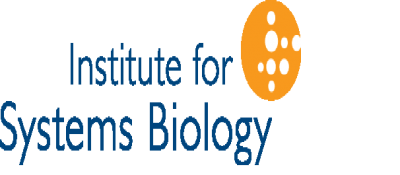Dr. Robert Moritz
What peaked your interest in the STEM field? How did this interest bring you to your current position?
I fell into the job, I didn’t expect to be in science, I had a friend who worked in biology, they said there was an opening and I went. Graduated high school, worked, then got degree.
Other than scientific research what do you like to do in your spare time?
Travel, I don’t really have spare time, I have a pilot’s license so I fly a plane, but not much.
What challenges have you had to overcome in the stem field
Work gets in the way of everything, keeping relationships is difficult with frequent work, in science you don’t work 9 to 5, sometimes it’s 9 to 9, I don’t usually have good time management and science can take a lot of time.
What do you like most about ISB?
Thing that’s kept me here the most is the quite varied environment that you’re in. Where I was before there was very similar work being done, here there is much more variety, with computational work bringing much more data together. A holistic view on things.
You’ve developed and been part of developing many proteomics technologies that are still used today including micro-chromatography, and a new micro-fractionation technique. Would you be willing to explain the function of these two findings and express why you felt it was necessary to develop them?
We’ve done much more than that, that’s very old on the website, I got introduced to chromatography, a column with glass beads could separate proteins and things based on their properties, I designed a manner to do this in very small quantities rather than very large quantities. I developed that kind of stuff. More recently we’ve worked on moving all of these techniques into a manner in which we could measure and record all human proteins. Atlas project.
Out of all of the projects you have been a part of, which do you think still holds the most promise and why? Similarly, is there another subject you have not delved into that holds a large potential
There’s been a number of them, up until the year 2000 nobody knew what the human genome was, there were all these wild speculations about how many genes there were. Before it was known, every new protein we found was an entirely new discovery. A number of these proteins now are drugs or being developed into drugs. Many common drugs are proteins we found back before 2000. Now that we know the genome we can’t discover new ones, so we research protein interactions, interactions between numbers of proteins.
Could you tell us a little about the technicality of a proteomics lab and any of the quirks that come with the equipment involved?
Mass spectrometry is now the current major technology that’s being used. The word proteomics means many proteins. The original way of doing this was very inefficient, now we have mass spectrometry, we can see at a much smaller scale. In the future we probably won’t use them as they are very difficult to keep clean, and about half the time is used troubleshooting. I think in the future we will see protein measurements using chips, like a chip reader.
You also proposed a computational system for proteomics data, how is the availability of information a challenge and about any struggles there are with current programs?
For proteins there’s an increasing amount of data being available, prior to four or five years ago people didn’t share their data. They wanted it for their own work. That all changed when people started asking if others did their computations correctly, so we built a system called the Atlas system that could take in everybody’s data, and share this data with the world. We believe that data should be reused and available to benefit everyone, this allows new ideas to be built upon old ones, and improvements to be made. Allows others to contribute to world knowledge.
Has there ever been a time where you had a significant malfunction or mistake happen in your research that could have been (or was) disastrous? How would you recommend handling a mistake or a high risk situation in the lab similar to your experience?
We tried very hard to make sure we interpreted everything correctly, applying multiple approaches. For malfunctions we’ve thought a project would be very easy to do, but it turned out to be very difficult. Working with tuberculosis, there is no field test to see who has tuberculosis, we thought it would be easy. We thought we found an antibody that could detect markers for TB, it seemed to work on rabbits, didn’t work on people. We’ve had to go back over it.
What advice would you give high school students planning on pursuing the STEM fields in college?
Yeah, I think for you guys if you’re interested in science, do something that you find fun. Don’t get into a job that doesn’t excite you. If you don’t have those periods in time where you can think ‘’all that work I did made a difference’’ then it might not be for you. Knowing you really made a difference really spurs you on. Every job can be a drag sometime, but if it’s not interesting in the long term it may not be for you.
There’s less time being spent at the bench now, more computational. So computer skills can be very important, being able to create and use software tools can help greatly, and you become far more valuable to others as well.
